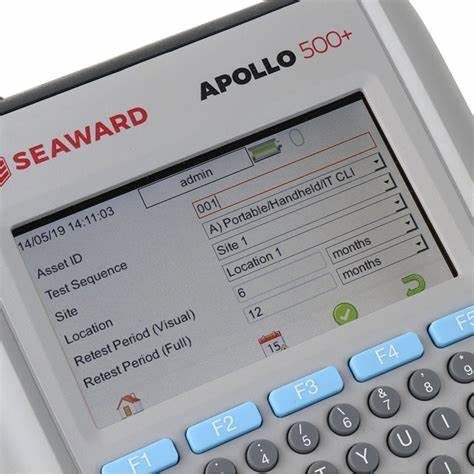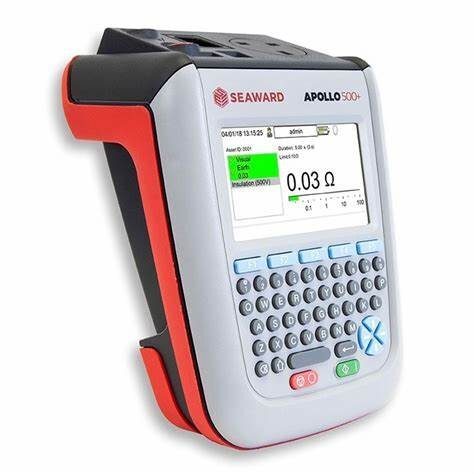Pat Testing Manchester
Welcome to Cheshire Building Consult, where safety is our top priority. We provide complete PAT testing Manchester to ensure your portable electrical appliances (PEA) run smoothly, protecting your team from potential dangers.
Gov statistics

What is PAT Testing?
Portable Appliance Testing (PAT) ensures that electrical appliances are safe. It involves several tests and inspections of portable electrical equipment, which helps to discover any possible hazards that may result in electric shock, fire, or other accidents. PAT testing is typically conducted by trained experts who use specialised equipment to determine the safety of appliances such as computers, kettles, and power tools.
The PAT testing process involves visual checks and electrical tests. It looks for any visible signs of damage, like frayed cords or damaged plugs. Electrical tests measure the insulation resistance, earth continuity, and appliance operation. All issues are recorded in a report to determine whether they have passed or failed the tests.


Importance of PAT Testing in Manchester
Faulty electrical wiring and damaged appliances are the main culprits behind domestic and workplace fires. That is where PAT tests come in. Regular testing helps in:
- Preventing Electrical Accidents: By identifying potential problems before they escalate, our certified PAT testing in Manchester minimises the risk of electric shock and fires, helping to maintain a safer environment.
- Ensuring Regulatory Compliance: The Health and Safety at Work Act 1974 and Electricity at Work Regulations 1989 legally oblige employers to maintain a safe working environment.
- PAT Testing ID Domestic Dwellings: Where a landlord provides an electrical appliance as part of a tenancy, the law expects the appliance to be maintained in a safe condition that will not cause harm to the tenant. Failure to do so could lead to the landlord being sued for negligence.
- Extending the Lifespan of Your Equipment: Regular inspections and maintenance can help you detect minor issues before they develop into significant problems (both in your office and home). Our home and office PAT testing in Manchester extends the lifespan of your appliances and saves you money on replacements.
Types of appliance and frequency of testing.
| Types of Appliances | Definition | Examples | Recommended PAT Testing Frequency |
| Class I | Appliances with basic insulation and an earth connection to prevent electric shock. The metal parts are earthed via a protective conductor to ensure safety in case of insulation failure | Kettles, irons, refrigerators, washing machines, toasters. | Every 12 months in low-risk environments; every 3-6 months in high-risk environments (e.g., public use areas). |
| Class II | Appliances with double or reinforced insulation not requiring an earth connection. They are designed to prevent electric shock even if one insulation layer fails. | Hairdryers, drills, TVs, lawnmowers and garden tools. | In low-risk environments, testing is required every 12 months; depending on usage, handheld appliances may require testing every 3-6 months. |
| Class III | Appliances operating at a separated extra-low voltage (SELV) of no more than 50V AC or 120V DC. These do not require an earth connection and pose minimal risk of electric shock. | Phone chargers, laptops (via SELV adapters) and low-voltage lighting. | Visual inspections only; PAT testing of chargers every 12 months, depending on environment and usage. |
**Any equipment operating at 110V should be tested in every three months interval.**
What is Portable Electrical Appliances (PEA)?
PEA refers to any portable electrical equipment with a plug and cable. This includes various appliances used daily in offices, different work environments, and homes.
Importance of PAT Testing
Faulty electrical wiring and damaged appliances are the main culprits behind domestic and workplace fires. That is where PAT tests come in. Regular testing helps in:
Should You Consider PAT Testing?
The answer is a resounding yes. While PAT testing isn’t a legal requirement as of 2024, it’s a highly recommended and cost-effective way to ensure the safety of the occupants and properties.
What Does PAT Testing Involve?
Here at Cheshire Building Consult, we are seasoned professionals in PAT testing. Our comprehensive approach involves:
- Visual Inspection: This is the first step of PAT testing. Our experts will check your appliances for any signs of damage to the plugs, leads and casings.
- Electrical Testing: During this step, our PAT testers will use specialised equipment to assess each appliance’s insulation and ensure proper earthing (grounding).
- Labelling: Following the inspection and testing, they will label each appliance using a PAT test sticker that indicates its pass or fail status and the recommended retest date.
Once we are done, our team will hand you an inventory list mentioning the type of each appliance, its name, location, and description, a detailed report stating the test result for each piece of equipment, and a list of failed equipment (if any) along with the reason for its failure.
Why Choose Cheshire Building Consult for PAT Testing?
- Unwavering Expertise and Qualifications: Our team comprises fully qualified and insured PAT testers with a wealth of experience in the field. People trust us for the quality and credibility of our services. Thus, when you choose us, you can rest assured that we won’t risk your safety in any way.
- Efficient and Minimally Disruptive: We understand the importance of minimising disruption to your daily routine. Our PAT testers are adept at working swiftly and efficiently. We complete the entire testing process without hindering your daily workflow. The best part is we work around your schedule to ensure the testing causes minimal inconvenience to you.
- Comprehensive Testing Services: We offer a complete range of PAT testing in Bolton, Manchester, Blackburn, and across the UK. Our team tailors their approach to your specific needs. We can also provide expert advice on any electrical safety concerns.
- Transparent and Competitive Pricing: We provide clear and competitive pricing for our PAT testing services. When you choose us, you’ll receive a comprehensive quote upfront, with no hidden costs. We’re confident you’ll find our pricing structure fair and cost-effective.
Invest in Peace of Mind with Regular PAT Testing Manchester
By opting for regular PAT testing with us at Cheshire Building Consult, you’re protecting your employees and property from potential electrical hazards and demonstrating your commitment to upholding safety regulations.
Contact us and schedule your appointment for PAT testing in Manchester, PAT testing in Bolton, PAT testing in Blackburn, or elsewhere in the UK today. We’ll work diligently to ensure your home and workplace remain safe and compliant.
Other than this, we can also help you with fire risk assessment and building new home extensions in the UK.
PAT Testing Now Available From £40+VAT - Book Now
Get in touch with
one of our friendly
team today.
Contact Cheshire Building Consult today for a
free no-obligation quote.
